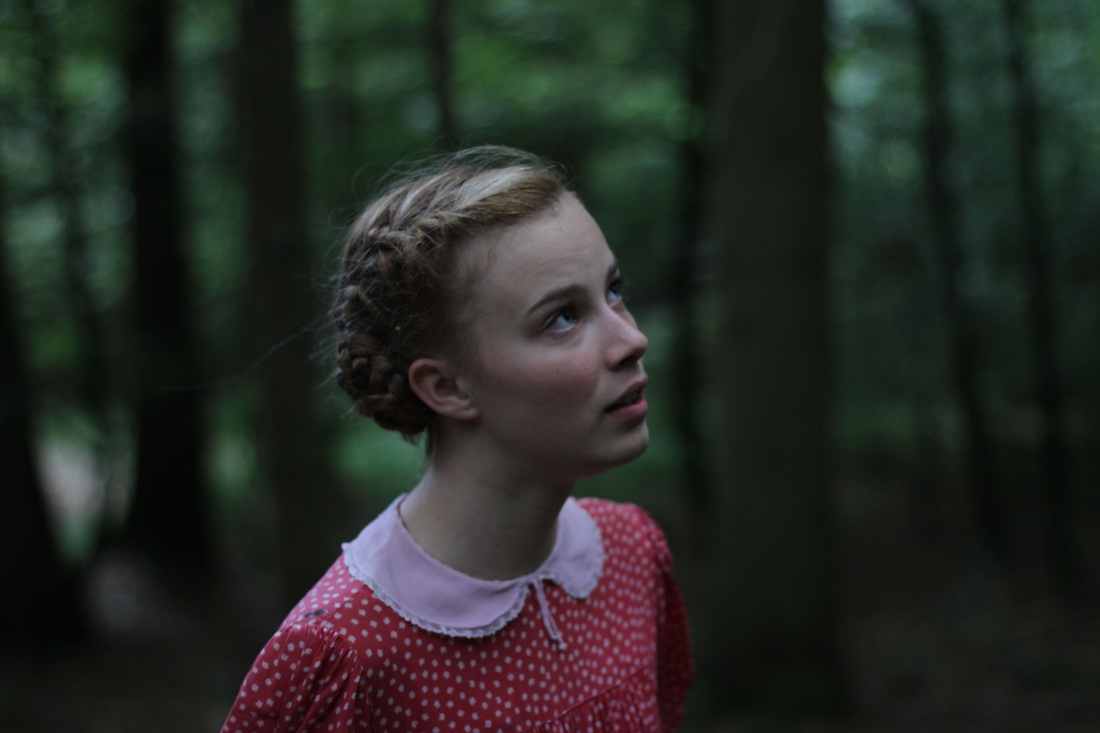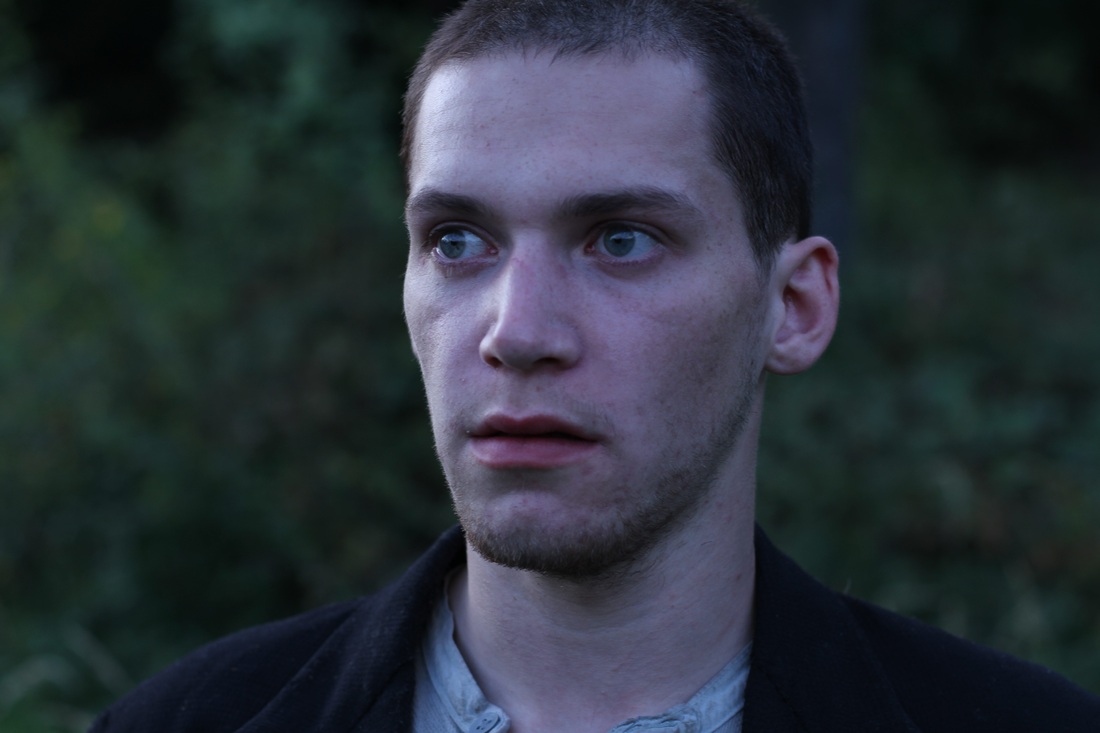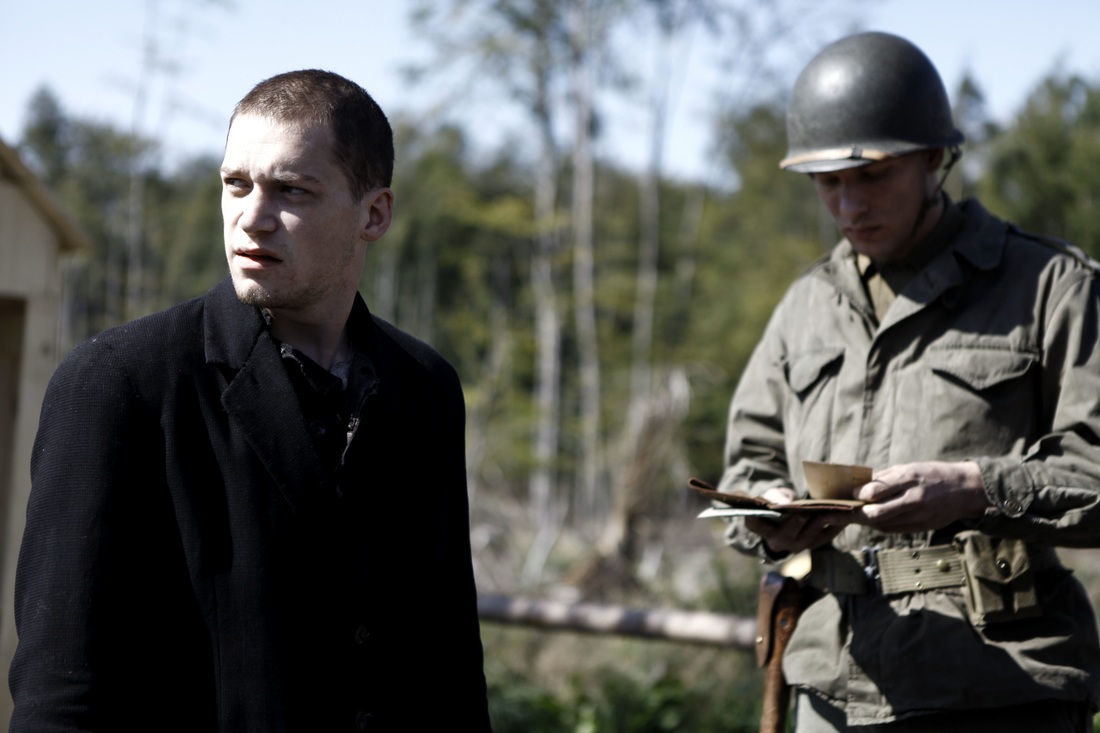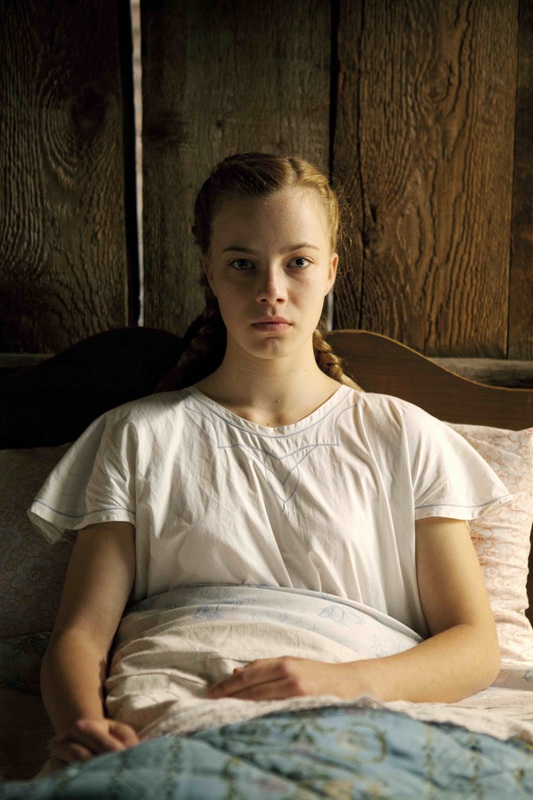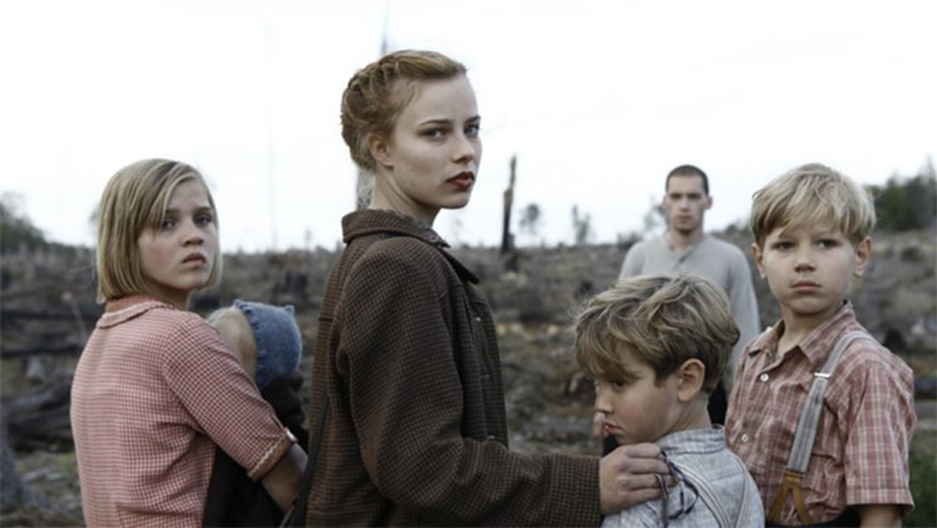|
How entertaining? ★★★☆☆
Thought provoking? ★★★☆☆ 29 January 2013
This article is a review of LORE. |
“You’re such a coward,” Mutti to Vati
We’ve had to wait eight years for director Cate Shortland’s follow-up to her moving debut, SOMERSAULT; increasing the size of her canvas, moving from the internal troubles of a young woman, to a war-torn peregrination. An even younger woman is the linchpin.
The German army is collapsing at the close of the European front of the Second World War. Those high up in the Nazi machinery are fleeing in an attempt to avoid Allied justice; Vati is one who is likely to receive swift and focused retribution. Vati is German for ‘dad’, and that’s all we know him as. The same with his wife: Mutti (‘mum’). Vati and Muti take their five children to a forest cabin where they might be safe. In the same way as during the Hitler hegemony, there were those willing to reveal locations of state undesirables to the authorities, the situation has reversed now in the embers of continental conflict. The locals cannot be trusted not to reveal their location, but also they cannot be seen to aid fugitives of war crimes. Vati flees on his own; either to spare his kin, or to save his own skin without anyone holding him back.
We’ve had to wait eight years for director Cate Shortland’s follow-up to her moving debut, SOMERSAULT; increasing the size of her canvas, moving from the internal troubles of a young woman, to a war-torn peregrination. An even younger woman is the linchpin.
The German army is collapsing at the close of the European front of the Second World War. Those high up in the Nazi machinery are fleeing in an attempt to avoid Allied justice; Vati is one who is likely to receive swift and focused retribution. Vati is German for ‘dad’, and that’s all we know him as. The same with his wife: Mutti (‘mum’). Vati and Muti take their five children to a forest cabin where they might be safe. In the same way as during the Hitler hegemony, there were those willing to reveal locations of state undesirables to the authorities, the situation has reversed now in the embers of continental conflict. The locals cannot be trusted not to reveal their location, but also they cannot be seen to aid fugitives of war crimes. Vati flees on his own; either to spare his kin, or to save his own skin without anyone holding him back.
|
|
|
Without money, the situation gets desperate. One night Mutti comes back from an excursion brutalised. Sexual violence towards women hangs over the film. Occupation, destitution, decimation, lawlessness, are tools to breakdown humanity; and here a stark demonstration of how flimsy societal mores potentially are.
Unable to cope it seems, and aware that apprehension is inevitable, Mutti turns herself in. Before doing so, she tells the oldest, Lore (Saskia Rosendahl), to take her four young siblings to their grandmother in Hamburg. Lore is only a teenager and the responsibility is onerous. Not only is the journey arduous and fraught, but you must wonder whether anyone will be waiting for them at the other side. Communications for occupied citizens is non-existent, and infrastructure barely functioning in a ravaged country. Germany is broken into four zones, run by Britain, America, France and Russia. Allied assistance is kyboshed with the rumour that “they kill all the children.” And so we watch an apocalyptic vision, akin to THE ROAD, as five siblings attempt to cross a hostile territory where compassion and mercy are in short supply.
While little sympathy might be elicited for those of such a regime suffering, young children though are clearly exempt responsibility. Lore though is nearing adulthood – at times childish, and at others mature - and her indoctrination rears its head occasionally, providing her character a moral ambiguity.
Like Jane Campion’s BRIGHT STAR, and Andrea Arnold’s WUTHERING HEIGHTS, the look is deep focus, with nature a vibrant respite from the bleakness.


